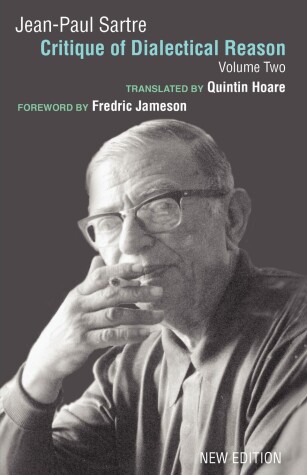Verso Classics
2 total works
Does history produce discernible meaning? Are human struggles intelligible? These questions form the starting-point for the second volume of Sartre’s Critique of Dialectical Reason. Drafted in 1958 and published in France in 1985, this magisterial work first appeared in English in 1991 and now reappears with a major new introduction by Fredric Jameson.
Volume Two’s theoretical framework is a logical extension of the predecessor’s. As in Volume One, Sartre proceeds by moving from the simple to the complex: from individual combat (through a perceptive study of boxing) to the struggle of subgroups within an organized group form and, finally, to social struggle, with an extended analysis of the Bolshevik Revolution. The book concludes with a forceful reaffirmation of dialectical reason: of the dialectic as ‘that which is truly irreducible in action’.
Volume Two’s theoretical framework is a logical extension of the predecessor’s. As in Volume One, Sartre proceeds by moving from the simple to the complex: from individual combat (through a perceptive study of boxing) to the struggle of subgroups within an organized group form and, finally, to social struggle, with an extended analysis of the Bolshevik Revolution. The book concludes with a forceful reaffirmation of dialectical reason: of the dialectic as ‘that which is truly irreducible in action’.
During the phony war that preceded the invasion of France, between late 1939 and the summer of 1940, the young Jean-Paul Sartre was stationed in his native Alsace as part of a meteorological unit. He used his considerable periods of spare time, between mundane duties like watching weather balloons, to make a series of notes on philosophy, literature, politics, history and autobiography that anticipate the themes of his later masterpieces, and often surpass them in literary verve and directness. These War Diaries form a portrait of Sartre in his most intense and brilliant phase. With them the twentieth century's most remarkable and public philosopher has provided us with a fitting posthumous monument to his honest and creativity.

